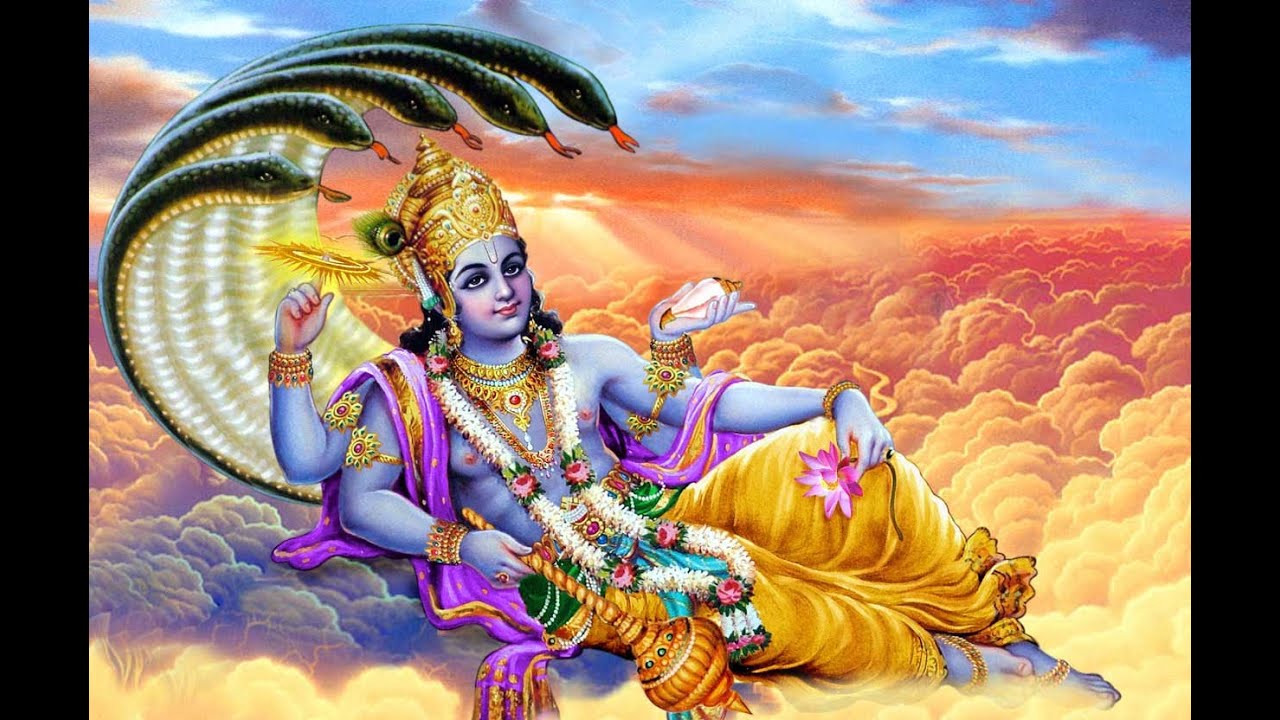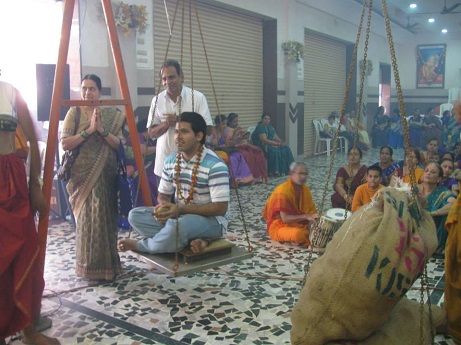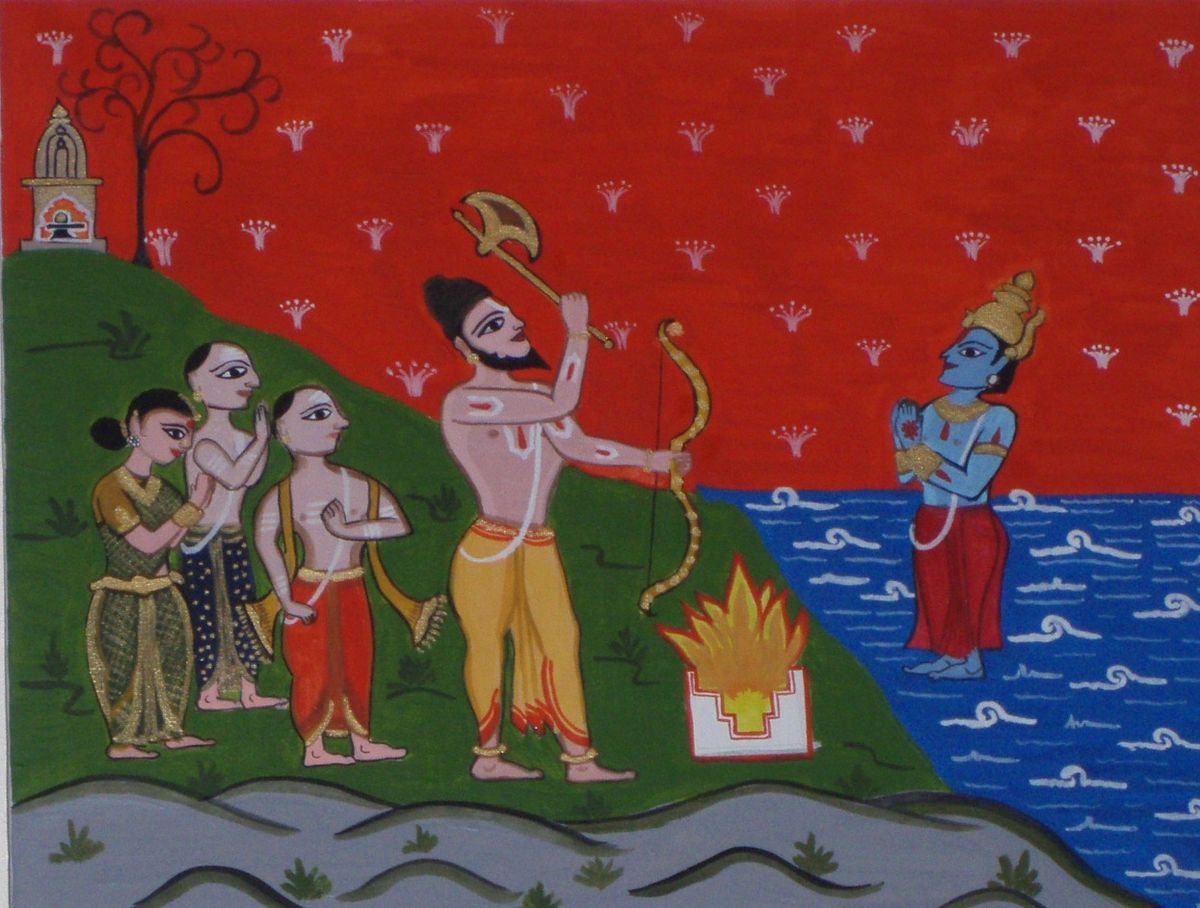The Vishnu Sahasranama is a sacred and revered religious text in Hinduism that consists of a list of one thousand names (sahasranama) of Lord Vishnu, one of the principal deities in the Hindu pantheon. These names are attributes, epithets, and qualities that describe Lord Vishnu's various aspects, powers, and manifestations. The Vishnu Sahasranama is found in the ancient Indian epic, the Mahabharata, specifically in the "Anushasana Parva" (the Book of Instructions), which is part of the larger Mahabharata epic.
The Vishnu Sahasranama is presented in the form of a conversation between the sage Bhishma and the sage Yudhishthira. In this dialogue, Bhishma imparts spiritual knowledge to Yudhishthira by revealing the thousand names of Lord Vishnu and explaining their significance. Each name reflects a specific quality, attribute, or divine characteristic of Lord Vishnu.
Bheeshma, on the death bed ,addressed to Yudhishthira that by chanting 1000 names of lord Vishnu, one can be free from all Bhandas and Karmas of life. Yudhisthara kept chanting the 1000 names of Lord Vishnu. This piece of Mahabharata is called Vishnu sahasranamam. The starting and concluding prayer, the names are collected in stanzas. Such stanzas are called shlokas in Sanskrit. There are total of 108 shlokas in Vishnu Sahasrnama.
The chanting or recitation of the Vishnu Sahasranama is considered a sacred practice in Hinduism and is often performed as a form of devotion and meditation. It is believed that reciting these names with reverence can bestow blessings, protection, and spiritual benefits upon the devotee. Many devotees and followers of Lord Vishnu recite or listen to the Vishnu Sahasranama as part of their daily prayers or during special religious occasions.
The Vishnu Sahasranama is not only a devotional text but also holds philosophical and spiritual significance. It emphasizes the divine qualities of Lord Vishnu and provides insights into the nature of the ultimate reality. The names highlight Lord Vishnu's role as the preserver and sustainer of the universe, as well as his various incarnations (avatars), such as Lord Rama and Lord Krishna.
Overall, the Vishnu Sahasranama is a revered text that encapsulates the essence of devotion, spirituality, and philosophy within the context of Hinduism. It is cherished by millions of Hindus and has been an integral part of the religious and cultural fabric of India for centuries.














